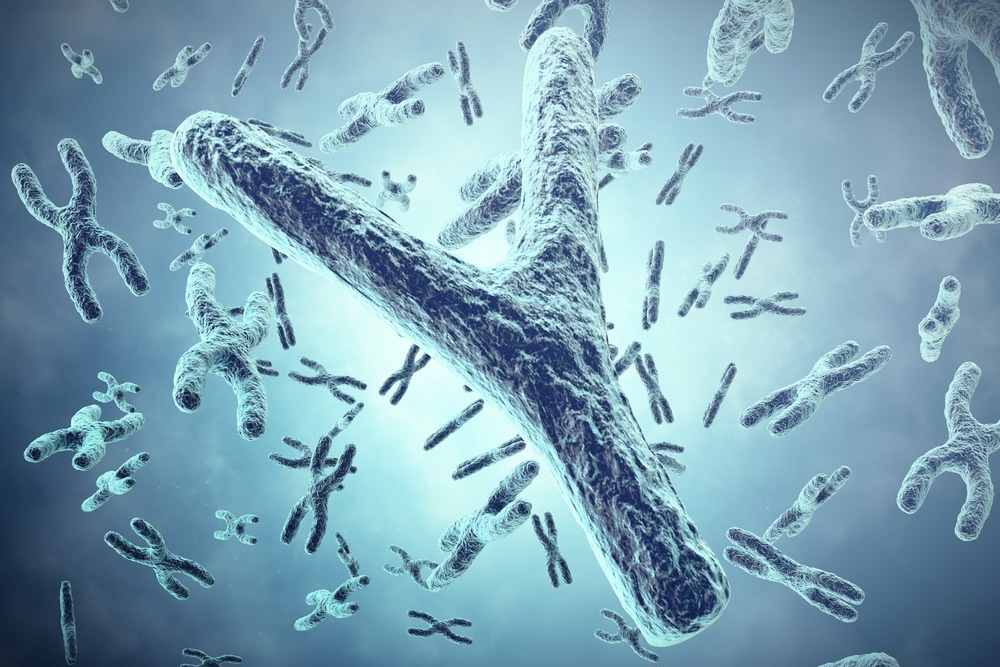Scientists at the Van Andel Institute and its partners have discovered a critical component of a system that annotates genetic information before it is transferred from fathers to their offspring.

Image Credit: Rost9/Shutterstock.com
The research, which was published on September 6th, 2023, in the journal Science Advances, provides fresh insight into the biological process known as genomic imprinting, in which the copy of a gene from one parent is turned off while the one from the other parent is kept active. Imprinting mistakes have been related to various diseases, including the rare disorder Silver-Russell syndrome, as well as several malignancies and diabetes.
Proper imprinting is crucial for lifelong health but, despite its importance, we still lack a full understanding of the factors that regulate this vital process. Our findings reveal an RNA mechanism that governs establishment of imprinting and illuminates why it differs between fathers and mothers.”
Piroska Szabó, Ph.D., Study Corresponding Author and Associate Professor, Van Andel Institute
DNA, a long, twisting molecule densely packed to create 23 pairs of chromosomes, half of which come from one's father and half from one’s mother, encodes human genetic information. Sperm and eggs contain just 23 single chromosomes, accounting for half of the genetic material necessary for life. During fertilization, they contribute half of their chromosomes, resulting in a zygote with all 23 pairs of chromosomes.
However, not all DNA instructions are required at the same time or at the same locations. This is when epigenetics comes into play. Epigenetic processes label DNA with special chemical tags known as methyl groups, which inform certain genes when to be active and when to be silent—all without affecting the sequence of the DNA itself.
When methyl groups are added to certain genes during sperm or egg development, imprinting occurs. This is critical for deciding which parental copy of the gene is expressed in the progeny.
Szabó and colleagues focused on an imprinting regulatory region in the DNA that regulates the Igf2 gene to better understand the processes that govern imprinting. Igf2 performs critical roles in fetal development and is exclusively active on the father's chromosome. In humans, a lack of methylation in the IGF2 regulatory region can result in Silver-Russell syndrome, which is characterized by stunted development and an increased risk of metabolic disease.
Szabó further added, “If the IGF2 gene’s imprinting control region from one’s father is not methylated, it can result in disease.”
Using genetic models and in-depth genetic sequencing, the researchers discovered that the methylation of the Igf2 control region in paternally inherited DNA is mediated by an underlying RNA-based mechanism in the male germline.
“We found earlier that RNA similarly runs through other paternally marked imprinted domains in the male germ cells, suggesting that this same process is generally true for paternal imprinting. These results suggest a more broadly applicable process, which is exciting and will need to be confirmed in subsequent studies,” Szabó.
Source:
Journal reference:
Liao, J., et al. (2023). Establishment of paternal methylation imprint at the H19/Igf2 imprinting control region. Science Advances. doi.org/10.1126/sciadv.adi2050.